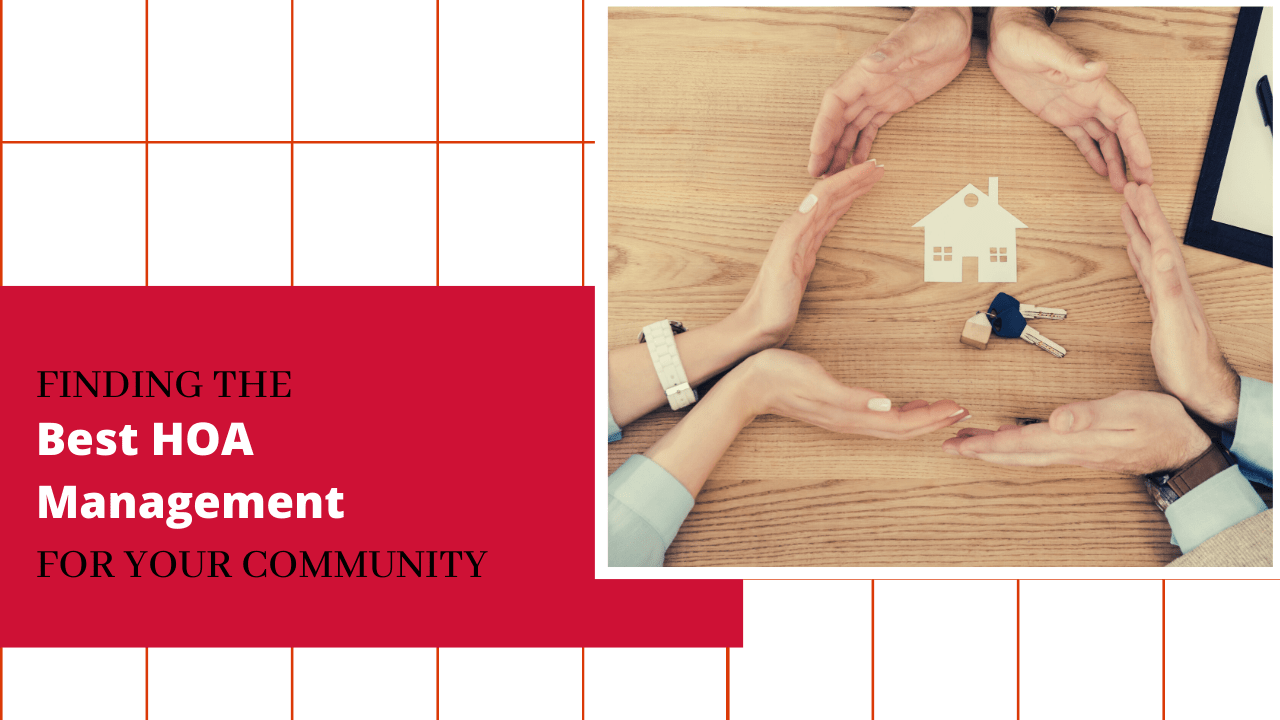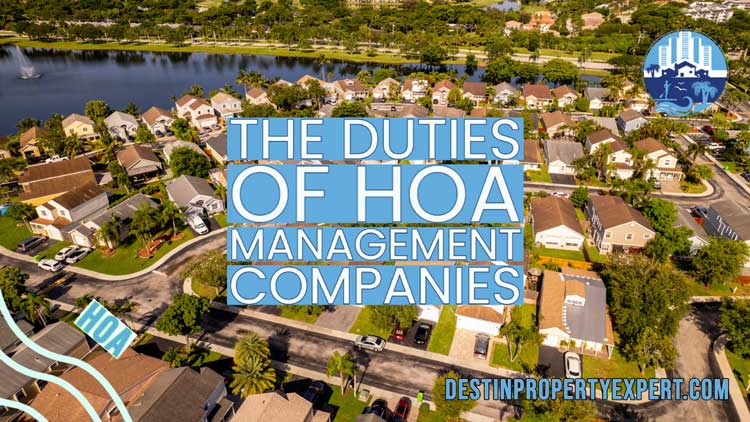From Financials to Upkeep: Understanding the Art of HOA Management for Community Organizations
Managing a neighborhood organization needs a delicate equilibrium between monetary obligations, efficient communication, and effective maintenance operations. From looking after spending plans and economic declarations to coordinating maintenance tasks and applying guidelines and regulations, HOA monitoring can be an intricate art that requires a varied collection of skills. In this conversation, we will certainly discover the various elements of HOA monitoring, from the details of financial management to the significance of maintaining a well-functioning community. By diving right into these crucial areas, we aim to supply important insights and techniques for grasping the art of HOA administration, leaving you equipped with the understanding and devices required to browse the difficulties that may emerge within your area organization.
Comprehending Financial Duties
What are the essential economic obligations that area associations require to understand and take care of successfully? Area associations play a crucial role in taking care of the finances of their neighborhoods. hoa management san antonio. To ensure the monetary well-being of the organization, a number of vital obligations should be understood and taken care of efficiently
First and foremost, community associations have to establish and preserve a comprehensive budget plan. This entails accurately approximating expenses and income resources, such as monthly fees, unique analyses, and rental revenue. A tactical budget enables associations to allot funds for necessary costs, such as upkeep and repairs, insurance coverage costs, and get funds for future funding jobs.
An additional vital financial obligation is the collection of assessments and dues. Neighborhood associations need to make sure reliable and prompt collection of these charges to cover functional expenditures and preserve the economic stability of the association. This includes carrying out a clear and clear payment plan, dealing with misbehaviors promptly, and imposing any kind of necessary lawsuits.
Additionally, neighborhood associations need to preserve precise financial records and prepare normal monetary statements. These statements provide a clear photo of the organization's monetary health and wellness, including income, expenditures, and books. Regular economic reporting allows board participants and house owners to track the association's economic performance and make educated decisions regarding budgeting and investing.
Finally, community organizations should comply with all suitable financial regulations and tax needs. This includes declaring tax returns, maintaining proper documents, and adhering to any kind of legal commitments related to economic management.
Reliable Communication and Partnership
Effective communication and cooperation are necessary for successful HOA administration and fostering a natural area. Community organizations rely upon efficient interaction to distribute vital information, address problems, and make sure openness. A regular and clear line of communication in between the HOA board, locals, and home monitoring is important for a well-functioning area.
One method to advertise reliable communication is with normal newsletters or emails that give updates on neighborhood occasions, tasks, and important announcements. This enables locals to stay notified and taken part in the area. In addition, establishing open lines of communication via community online forums or town hall meetings can supply a system for homeowners to articulate their point of views, ask questions, and add to decision-making processes.
Collaboration is equally crucial in HOA administration. Urging collaboration amongst board members, locals, and committees fosters a sense of ownership and shared obligation. By entailing homeowners in the decision-making procedure and proactively seeking their input, the neighborhood association can create an extra unified and inclusive environment.
To facilitate effective collaboration, HOA monitoring need to develop clear objectives and purposes, delegate duties, and motivate team effort. Routine conferences, both formal and casual, provide an opportunity for stakeholders to talk about ideas, address worries, and job in the direction of typical goals. By promoting a joint setting, area associations can harness the varied abilities, expertise, and viewpoints of their homeowners to drive positive change and boost community living.
Streamlining Maintenance Procedures
Simplifying upkeep procedures is vital for cost-effective and effective HOA administration. By carrying out reliable techniques, area associations can ensure that upkeep tasks are executed smoothly and in a prompt fashion, lessening disturbances and maximizing resident contentment.

In enhancement, utilizing innovation can substantially enhance upkeep operations. Carrying out a computerized maintenance administration system (CMMS) permits associations to track work orders, routine preventative upkeep, and keep an organized document of upkeep tasks. This not only enhances effectiveness yet also supplies a clear and accountable system for both residents and administration.
In addition, outsourcing certain maintenance tasks can likewise simplify operations. By hiring specialized specialists for jobs such as swimming pool maintenance or landscaping, associations can make sure that these jobs are taken care of by professionals with the necessary expertise, freeing up interior sources to concentrate on other aspects of HOA management.
Focusing On Guidelines and Regulations
To ensure reliable and organized area living, prioritizing and imposing policies and guidelines is necessary for efficient HOA administration. hoa management san antonio. Neighborhood associations rely on a collection of standards to preserve a harmonious environment and shield home values. By plainly specifying and prioritizing rules and laws, HOA management can make certain that citizens understand their responsibilities and assumptions
Among the first actions in prioritizing policies and rules is to recognize those that are crucial for the area's wellness. This may include conducting a comprehensive testimonial of the existing guidelines and rules and determining any spaces or locations that need renovation. It is important to involve neighborhood participants in this process to guarantee their buy-in and to address any type of concerns or tips they may have.
When the most crucial rules and guidelines have actually been determined, HOA monitoring should make certain that they are successfully communicated to locals. This can be done via various ways, such as e-newsletters, emails, area conferences, and publishing notices in usual locations. Consistent and clear interaction is important to ensure that homeowners recognize the policies and regulations and understand the repercussions of non-compliance.
Enforcement of rules and laws is similarly crucial in maintaining a well-functioning community. HOA management need to establish a fair and consistent enforcement process, which may include warnings, fines, and other appropriate procedures. hoa management san antonio. It is important to strike a balance between enforcing the policies and rules and keeping favorable relationships with residents
Navigating Legal and Compliance Issues
Navigating legal and compliance issues is critical for HOA management to ensure adherence to regulations and legislations. Community associations need to find out this here operate within the bounds of the legislation to maintain the trust fund and confidence of homeowners and stakeholders. Failing to conform with lawful demands can result in legal disputes, fines, and damage to the organization's online reputation.
To browse these concerns effectively, HOA management ought to stay updated on federal, state, and regional regulations that regulate area organizations. This includes recognizing legislation pertaining to fair housing, taxes, residential or commercial property, and employment monitoring. Conformity with these regulations includes applying plans and treatments that secure my sources the civil liberties of homeowners and ensure openness in financial and functional matters.
Along with lawful obligations, HOA management must also abide by the organization's regulating records, such as the bylaws, covenants, problems, and constraints (CC&R s) These documents lay out the policies and laws that regulate the area and might include arrangements regarding residential property upkeep, architectural standards, and dispute resolution procedures.

Verdict
To conclude, grasping the art of HOA monitoring for neighborhood organizations needs a thorough understanding of financial obligations, efficient interaction and cooperation, enhancing upkeep operations, prioritizing laws and guidelines, and browsing lawful and compliance concerns. By successfully implementing these strategies, neighborhood organizations can make sure the smooth performance and general well-being of their communities.
By delving right into these crucial areas, we aim to provide beneficial insights and techniques for understanding the art of HOA administration, leaving you geared up with the knowledge and devices needed to browse the obstacles that might develop within your neighborhood association.
Neighborhood organizations play an essential function in taking care of the financial resources of their communities. Neighborhood organizations should ensure prompt and efficient collection of these charges to cover functional expenses and keep the financial security of the organization. By promoting a joint environment, neighborhood associations can harness the diverse abilities, knowledge, and viewpoints of their locals to drive favorable change and improve area living.
To navigate these problems properly, HOA management must remain updated on federal, state, and neighborhood laws that regulate area associations.